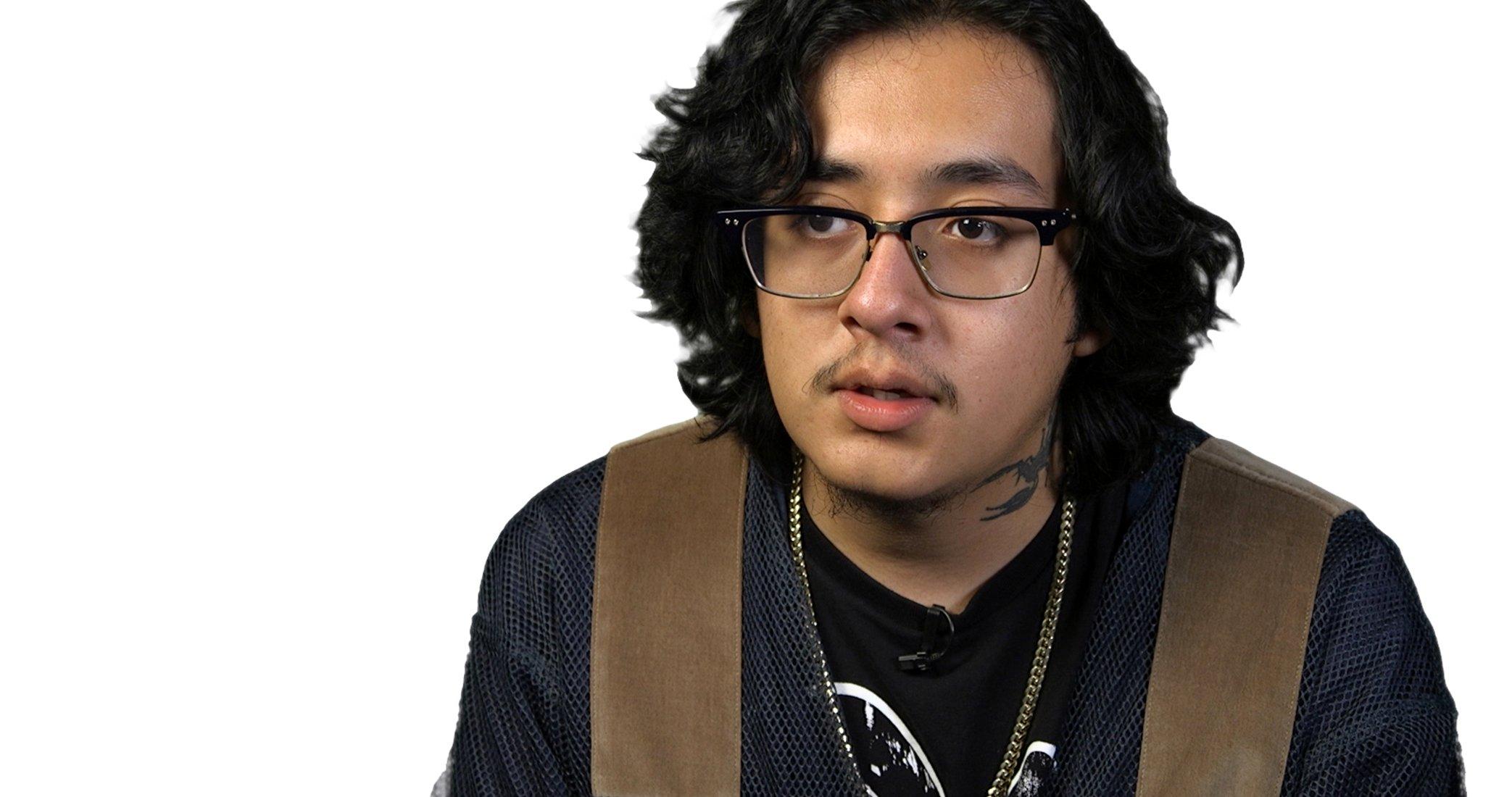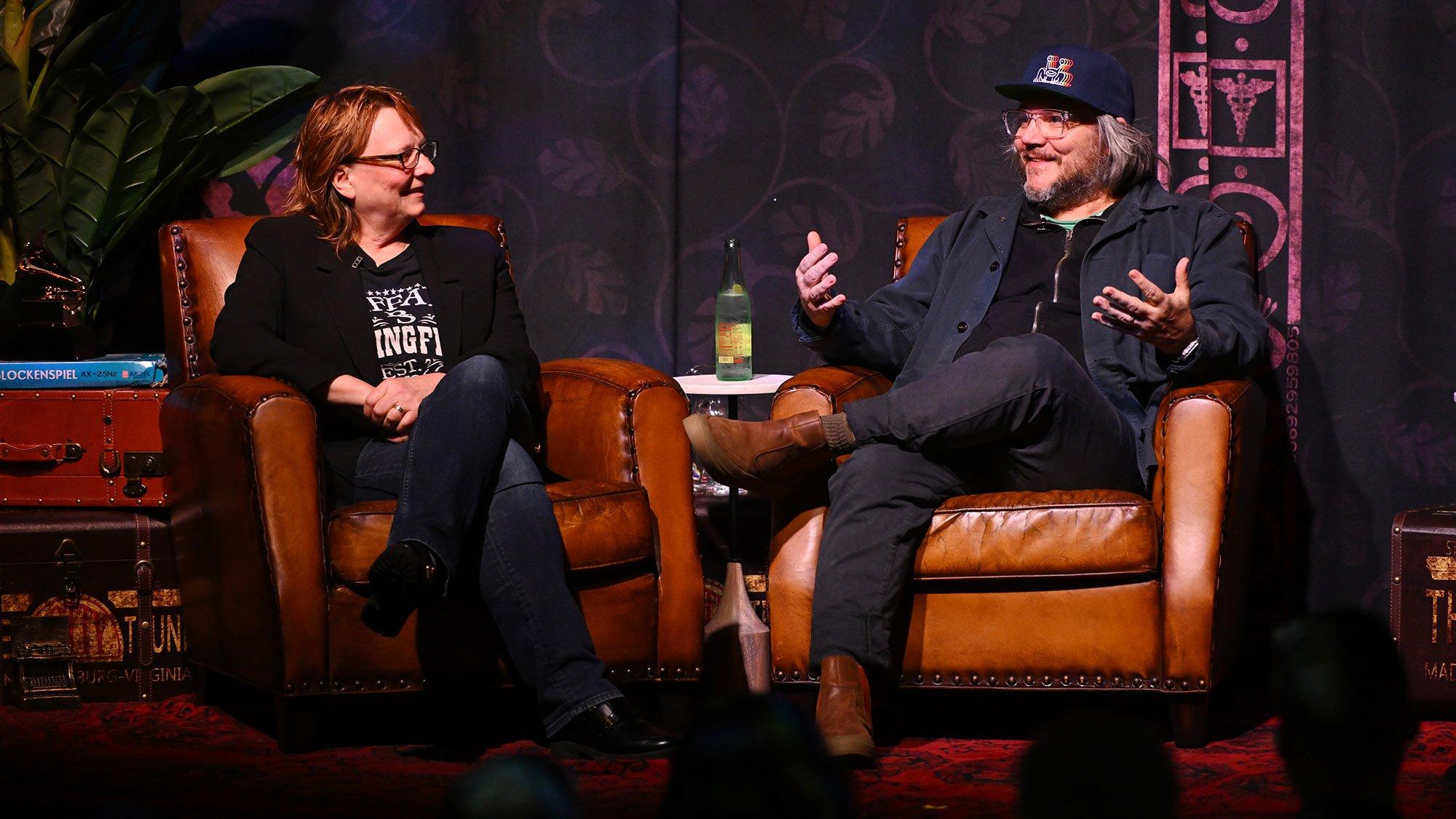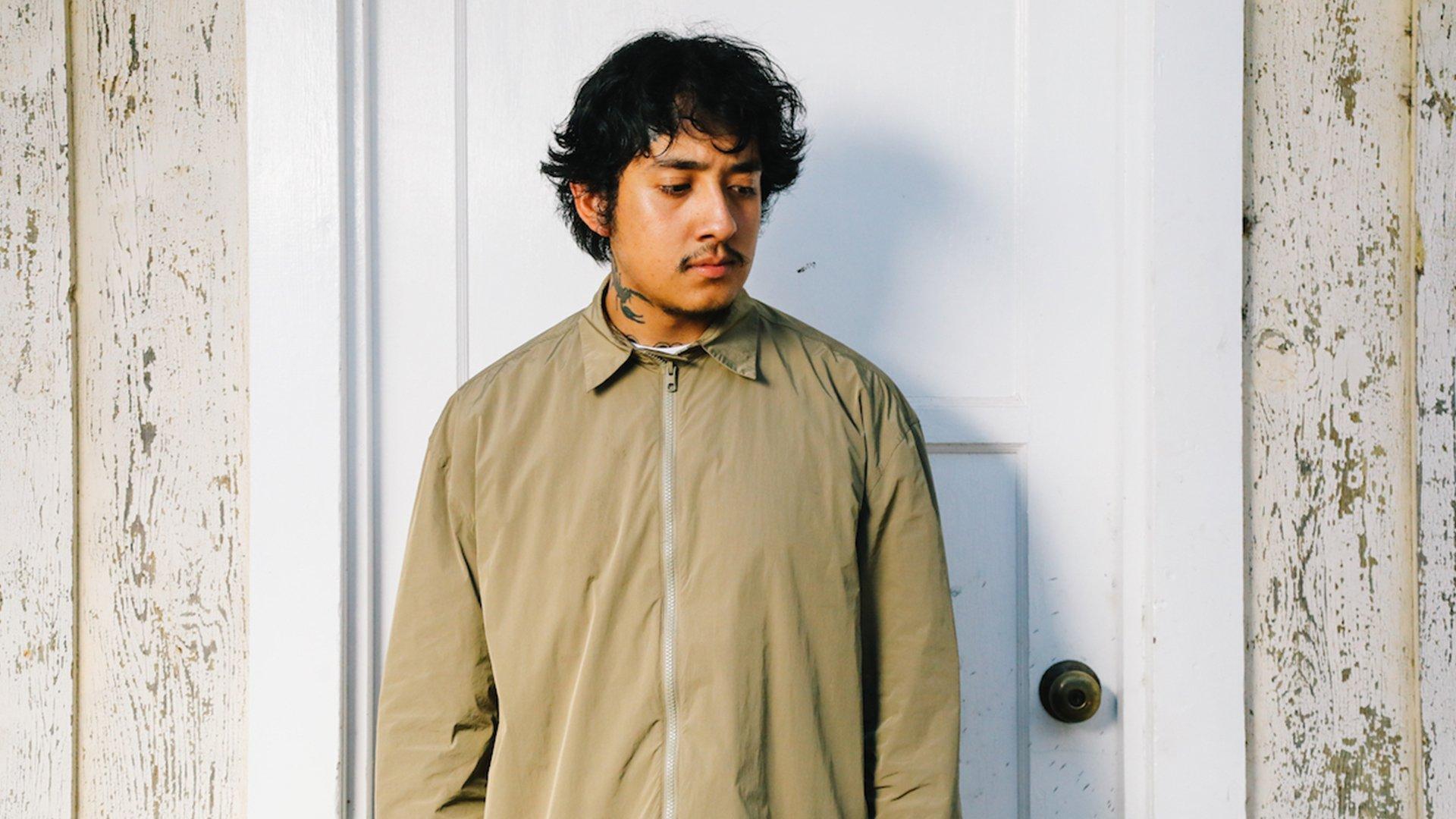"We don't get the applause. That's later."
That was an offhand comment from Sarah Jensen, the Senior Executive Director for the Recording Academy's Midwest Chapter — ahead of a conversation between Cheryl Pawelski and Jeff Tweedy. But given the nature of the ensuing chat, it's oddly apropos.
On the occasion of the 20th anniversary of Wilco's seminal Yankee Hotel Foxtrot, four-time GRAMMY winners Tweedy and Pawelski chatted before a hometown audience at the Rhapsody Theater in Chicago. Pawelski produced and curated Yankee Hotel Foxtrot (20th Anniversary Super Deluxe Edition), which won Best Historical Album at the 2024 GRAMMYs; Pawelski accepted the golden gramophone on their behalf.
Today, 2002's ambitious, deconstructionist Yankee Hotel Foxtrot is just about universally revered as a watershed for alternative music. But in a David-and-Goliath story told and retold since its release — especially in the documentary I Am Trying to Break Your Heart, Yankee was rejected by its label, Reprise.
Wilco left their label, published Yankee on their own website, and it became a tremendous hit. Nonesuch — which, like Reprise, operates through Warner Records — picked them up, meaning the same record company, in effect, paid Wilco twice.
Ever since, the applause for Yankee Hotel Foxtrot — the one with the immortal "I Am Trying to Break Your Heart," "Jesus, Etc." and "Ashes of American Flags" on it — has been unceasing. And, naturally, a hefty chunk of Pawelski and Tweedy's conversation — for the Recording Academy's "Up Close & Personal" interview series, and MCed by Chicagoan family music artist Justin Roberts — revolved around it.
According to Tweedy, Yankee Hotel Foxtrot was a pivot point, where they decided to move away from any sort of pastiche.
"There are a lot of things on the boxed set," he said — referring to the plethora of alternate versions of well-known tracks — "where I would listen to them now and go, 'That was good enough.' But it wasn't satisfying… Rock and roll was built on that thing, above all else… be yourself, without any apology, and on purpose."
The "Up Close & Personal" session didn't start with Yankee, though; it started with How to Write One Song, Tweedy's 2020 treatise on the process of… well, writing one song. Which gets as psychologically and spiritually incisive as Tweedy fans would expect.
"I think music in general is a safe place to fail," the prolific songwriter stated. "When you take your ego out of it and you look at it as a daily practice of spending time with yourself in your imagination… once you do it for a long time, it really makes the notion of failure almost quaint or something."
When it comes to songwriting, the 11-time nominee said "nothing's really ever lost. You learn something about yourself writing terrible songs. I know myself better because of the songs that you've never heard."
Tweedy offered other helpful concepts and strategies, like accumulating enough voice memo ideas — for so long — that you can treat them like the work of a stranger. "I'll go through and listen through a bunch of stuff like that," Tweedy quipped, "and go, 'Who wrote this?'"
Pawelski went on to elucidate her rich legacy in the music business — including her fight to get the Band's deep cuts, like Stage Fright, included in Capitol's music budget. (She's worked on archival projects by everyone from the Beach Boys to Big Star to Willie Nelson across her decades-long career.)
Read More: Jeff Tweedy's Blurred Emotions: Wilco's Leader On Cruel Country & Songwriting As Discovery
Tweedy also discussed the magic of collaboration. "I've gotten really good at being alone with people. So I think that facilitates collaboration to some degree," he said. "What I mean is being as forgiving of myself with other people in the room as I am with myself alone."
What was one of his favorites, Roberts inquired?
"The one that probably will always be the most proud of is getting to work with Mavis Staples and contributing something to her catalog, to her body of work that seems to have resonated not just with her audience or a new audience, but with her that she likes to sing, that means something to her. I think that would've satisfied me without it winning a GRAMMY [in 2011]."
When the conversation drifted to Yankee Hotel Foxtrot, Pawelsky discussed the foreboding process of digging through the sessions' flotsam and jetsam.
"The world kind of changed during the making of this. The band certainly changed, and also, technology changed," she explained. "So we had everything — we had DATs, we had ADATs, we had tape, we had cassettes, we had CD-Rs."
About her process: "I go backwards and try to reconstruct how things happen, and it's always incomplete and I don't know what I'm missing, so it's extra fun. But this particular record was done and undone in a lot of ways… some of the latter recordings sound like they're earlier recordings."
As Pawelski admits, the prospect of stewarding Yankee was "kind of terrifying" because of how meaningful the record is. "It really was a Rubik's cube. I would get the orange side done and I'd turn it over."
As the talk wound down, the subject of Wilco's latest album, Cousin, came up — as well as Wilco's rare use of an outside producer, in Cate Le Bon.
"I thought that it would be really a catalyst for getting something different out of the songs that I write," Tweedy explained. "I like the idea of working with a woman, which I felt like has not happened that much in rock and roll, from my perspective
"So that felt like an inspired bit of lateral thinking," he continued. "that felt so right to me to get to — and that she wanted to do it, and that we were friends, and it did."
To go "Up Close & Personal" with Tweedy is unlike most interviews; his brain simply works different than most, and you walk away pleasantly scrambled and transformed.
Which is what the Yankee Hotel Foxtrot sessions were like — and thank goodness for Pawelski, who shows it's not merely a masterpiece: in all its alien transmissions, vulnerable one-liners and shattered poetry, Yankee continues to engender GRAMMY glory.
Songbook: A Guide To Wilco's Discography, From Alt-Country To Boundary-Shattering Experiments





